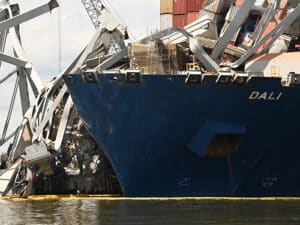
Port state control crackdown will focus on sulfur and NOx emissions
Written by Nick Blenkey
AUGUST 2, 2018 — Port state control authorities are to launch a Concentrated Inspection Campaign on MARPOL Annex VI, which sets limits on sulfur and nitrogen oxide emissions from ship exhausts and prohibits deliberate emissions of ozone-depleting substances and volatile organic compounds.
To be held for three months starting September 1, 2018 and ending November 30, 2018, the inspection campaign is being coordinated by the Tokyo and the Paris Memoranda of Understanding (MoU) on Port State Control.
Port state control officers will use a list of 11 questions to assure that equipment carried onboard complies with the relevant statutory certificates, the master and officers are qualified and familiar with operations and that equipment is properly maintained and functioning.
If deficiencies are found, actions by the port State may vary from recording a deficiency and instructing the master to rectify it within a certain period of time to detaining the ship until the serious deficiencies have been rectified. In the case of detention, publication in the monthly detention lists of the Tokyo and Paris MoU web sites will take place.
It is expected that approximately 10,000 inspections will be carried out during the campaign, the main objectives of which are to:
- establish the level of compliance with the requirements of MARPOL Annex VI within the shipping industry;
- create awareness amongst ships’ crew and ship owners with regard to the importance of compliance with the provisions of MARPOL Annex VI and the prevention of air pollution;
- send a signal to the industry that prevention of air pollution and enforcement of compliance with applicable requirements is high on the agenda of both MoU member States; and
- underline the responsibility of the Port State Control regime with regards to harmonised enforcement of compliance with the requirements of MARPOL Annex VI, thus improving the level of compliance and ensuring a level playing field.
Port state control officers will use a list of 11 questions to assure that equipment carried onboard complies with the relevant statutory certificates, the master and officers are qualified and familiar with operations and that equipment is properly maintained and functioning.
If deficiencies are found, actions by the port state may vary from recording a deficiency and instructing the master to rectify it within a certain period of time to detaining the ship until the serious deficiencies have been rectified. In the case of detention, publication in the monthly detention lists of the Tokyo and Paris MoU web sites will take place.
The results of the campaign will be analyzed and findings will be presented to the governing bodies of the MoUs for submission to the IMO.





Leave a Reply
You must be logged in to post a comment.